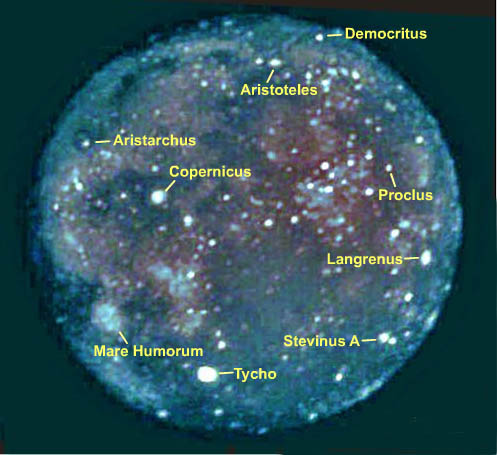Difference between revisions of "May 13, 2005"
| Line 11: | Line 11: | ||
onMouseOver = "document.images['main_image'].src='archive/2005/05/images/LPOD-2005-05-13b.jpeg'; return true" | onMouseOver = "document.images['main_image'].src='archive/2005/05/images/LPOD-2005-05-13b.jpeg'; return true" | ||
onMouseOut = "document.images['main_image'].src='archive/2005/05/images/LPOD-2005-05-13.jpeg'; return false" | onMouseOut = "document.images['main_image'].src='archive/2005/05/images/LPOD-2005-05-13.jpeg'; return false" | ||
| − | + | [[File:LPOD-2005-05-13.jpeg|LPOD-2005-05-13.jpeg]]] | |
</div></td> | </div></td> | ||
</tr> | </tr> | ||
| Line 23: | Line 23: | ||
<table class="story" border="0" bgcolor="#FFFFFF" width="90%" cellpadding="10" align="center"><tr><td> | <table class="story" border="0" bgcolor="#FFFFFF" width="90%" cellpadding="10" align="center"><tr><td> | ||
<p align="center"><b>Hotspots Identified!</b></p> | <p align="center"><b>Hotspots Identified!</b></p> | ||
| − | <p align="left">LPOD for [ | + | <p align="left">LPOD for [[April_28,_2005|April 28]] featured a red Moon created by the MSX satellite that imaged infrared radiation as the Moon cooled during an eclipse. My strong enhancement of the image revealed many hot spots that were probably due to bare rock surfaces inside the youngest craters on the Moon. I ended the LPOD by hoping that somewhat would merge the enhanced infrared image with a normal full Moon view to enable the identification of the young craters. And that is exactly what Bill Blevins did - a mouseover will show one of Bills full Moon images and moving your mouse on and off the image will allow you to quickly move between the two images. Julie Blevins undertook the task of identifying some of the brightest craters. But many more less bright ones exist. It would be a fascinating project for someone to identify as many of these craters as possible and see if they are very fresh and have rays. The Blevins good work has revealed that there is a good study hiding in these images!</p> |
<blockquote><p align="right">— [mailto:tychocrater@yahoo.com Chuck Wood]</blockquote> | <blockquote><p align="right">— [mailto:tychocrater@yahoo.com Chuck Wood]</blockquote> | ||
<p align="left"><p><b>Technical Details:</b><br> | <p align="left"><p><b>Technical Details:</b><br> | ||
| Line 43: | Line 43: | ||
[mailto:anthony@perseus.gr Anthony Ayiomamitis]</p> | [mailto:anthony@perseus.gr Anthony Ayiomamitis]</p> | ||
<p align="center" class="main_titles"><b>Contact Translator:</b><br> | <p align="center" class="main_titles"><b>Contact Translator:</b><br> | ||
| − | [mailto:pablolonnie@yahoo.com.mx | + | [mailto:pablolonnie@yahoo.com.mx Pablo Lonnie Pacheco Railey] (Es)<br> |
| − | [mailto:chlegrand@free.fr | + | [mailto:chlegrand@free.fr Christian Legrand] (Fr)</p> |
<p align="center" class="main_titles"><b>[mailto:webuser@observingthesky.org Contact Webmaster]</b></p> | <p align="center" class="main_titles"><b>[mailto:webuser@observingthesky.org Contact Webmaster]</b></p> | ||
<p align="center" class="main_titles"><b>A service of:</b><br> | <p align="center" class="main_titles"><b>A service of:</b><br> | ||
| − | [http://www.observingthesky.org/ | + | [http://www.observingthesky.org/ ObservingTheSky.Org]</p> |
<p align="center" class="main_titles"><b>Visit these other PODs:</b> <br> | <p align="center" class="main_titles"><b>Visit these other PODs:</b> <br> | ||
| − | [http://antwrp.gsfc.nasa.gov/apod/astropix.html | + | [http://antwrp.gsfc.nasa.gov/apod/astropix.html Astronomy] | [http://www.msss.com/ Mars] | [http://epod.usra.edu/ Earth]</p> |
</td></tr> | </td></tr> | ||
</table> | </table> | ||
Revision as of 15:32, 17 January 2015
Hotspots Identified!
<nobr>Hotspots Identified!</nobr> |
Image Credit: Bill & Julie Blevins
|
|
Hotspots Identified! LPOD for April 28 featured a red Moon created by the MSX satellite that imaged infrared radiation as the Moon cooled during an eclipse. My strong enhancement of the image revealed many hot spots that were probably due to bare rock surfaces inside the youngest craters on the Moon. I ended the LPOD by hoping that somewhat would merge the enhanced infrared image with a normal full Moon view to enable the identification of the young craters. And that is exactly what Bill Blevins did - a mouseover will show one of Bills full Moon images and moving your mouse on and off the image will allow you to quickly move between the two images. Julie Blevins undertook the task of identifying some of the brightest craters. But many more less bright ones exist. It would be a fascinating project for someone to identify as many of these craters as possible and see if they are very fresh and have rays. The Blevins good work has revealed that there is a good study hiding in these images! Technical Details: Related Links: Tomorrow's LPOD: Ancient Island |
|
Author & Editor: Technical Consultant: Contact Translator: A service of: |
COMMENTS?
Register, and click on the Discussion tab at the top of the page.




